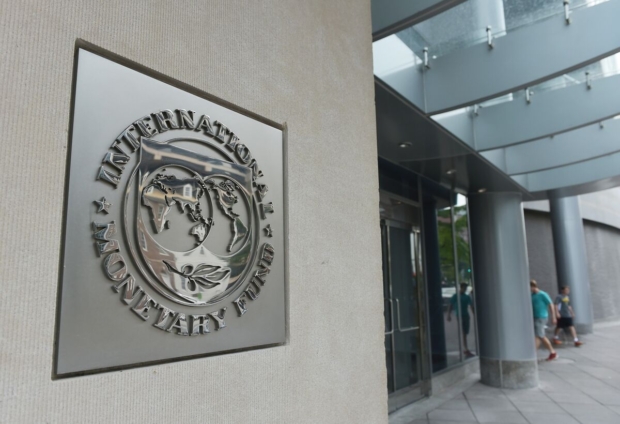The International Monetary Fund said that Ghana will need a debt relief agreement from its official creditors to qualify for further disbursements under a $3 billion extended credit facility program.
The Washington-based lender reached a staff-level deal with Ghana on the first review of the program that started in May, Stéphane Roudet, IMF mission chief, said in a statement on Friday.
Ghana’s dollar bonds rose and were among the best performers in emerging markets. Notes maturing in 2049 gained 0.2 cents to 41.07 cents on the dollar by 2:14 p.m. in London.
To complete the review, which will give the West African nation access to another $600 million disbursement, bilateral creditors must agree on specific terms of debt treatment, in line with the financing assurances they provided five months ago, he said.
The financing assurance enabled IMF to approve Ghana’s program, with an initial $600 million disbursement.
“We’re now in the first review so we’re moving from a general commitment to a specific credit commitment on terms of debt restructuring,” Roudet said at a press conference in the capital, Accra. "This will also inform the specific terms for external commercial creditors," he added.
The lender is treating Ghana like Zambia, which also has an IMF program.
Earlier this year, the IMF insisted that Zambia’s official creditor committee sign a memorandum of understanding to unlock the next disbursement, but later backed down and approved the payment after the bilateral lenders in June announced an agreement in principle to restructure $6.3 billion of debt.
“We are confident that the official creditor committee agreement will come through in time for the executive board’s approval in November,” Minister of Finance, Ken Ofori-Atta said in an interview, on the sidelines of the press conference.
Ghana’s policy reform commitment under the program is bearing fruit, Roudet said. Economic growth has proven more resilient than earlier thought, fiscal and external positions have improved, the exchange rate has stabilized and the inflation rate has declined, he said.
Ghana’s inflation slowed to 40.1% in August, its lowest level in 10 months. The cedi, which weakened as much as 21% earlier this year has pared its losses against the dollar to 13%.
The country is restructuring almost all of its $50 billion debt to make it sustainable under the IMF program. It has successfully completed its domestic debt rework. The next step is to revamp about $13 billion in Eurobonds.
Ghana sought IMF help in July 2022 after its dollar bonds plunged and spending cuts failed to convince investors it would be able to repay debt.
Latest Stories
-
Bayer Leverkusen’s Jeremie Frimpong donates to Osu Children’s Home in Ghana
2 hours -
GPL 2024/25: Heart of Lions beat Young Apostles to go three points clear
3 hours -
Dance battles, musical chairs light up Joy FM Party in the Park
3 hours -
Kwabena Kwabena, Camidoh, Kwan Pa Band, others rock Joy FM Family Party in the Park
3 hours -
GPL 2024/2025: Aduana beat struggling Legon Cities
3 hours -
GPL 2024/25: Bechem United fail to honor match against Holy Stars
3 hours -
Cooking competition takes centrestage at Joy FM Family Party In The Park
4 hours -
Album review: ‘Wonder’ by Nana Fredua-Agyeman Jnr
6 hours -
Bouncy castle, sack race, and smiles galore: Joy FM Family Party takes over Aburi Gardens
6 hours -
Watch: Kwan Pa Band thrills patrons at Joy FM Family Party in the Park
6 hours -
Akufo-Addo partly to blame for NPP’s defeat in 2024 election – Frank Agyekum
6 hours -
Rapid urbanisation endangers children’s mental health – Psychiatrist warns
6 hours -
Kedland International School hosts maiden Festival of Nine Lessons and Carols
6 hours -
I didn’t speak against holding wrongdoers accountable – Rev. Kwadwo Bempah clarifies ORAL comment
7 hours -
RSS Developers to hold 3-day open house event on home purchasing from Friday, Dec. 27
8 hours

